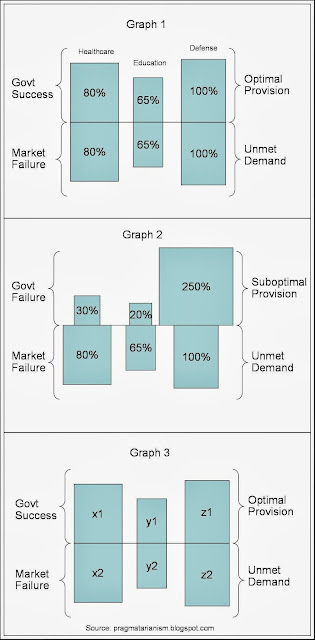It is, of course, not desirable that anything should be done by funds derived from compulsory taxation, which is already sufficiently well done by individual liberality. - J.S. Mill, Principles of Political Economy with some of their Applications to Social Philosophy
The question is, how can we determine just how badly the private sector is failing? In order to accurately correct for the private sector's deficiencies, the government needs access to what people in the private sector know.
What do private sector people know? They know external things (surroundings, circumstances, situations, environments) and internal things (values). They know how many potholes they run over (external) and how much cancer research they'd sacrifice to fix them (internal). They know how many times they've been mugged (external) and how much education they'd sacrifice for more police (internal). They know how many nights they've lost sleep because of the threat of terror (external) and how much space exploration they'd sacrifice for more peace of mind (internal).
So how does the government gain access to all this relevant information? Here are some possible responses...
1. Congresspeople don't need this information
2. Congresspeople are omniscient
3. Our political process allows citizens to adequately communicate their preferences to congresspeople.
Check out my terrible illustration skills...

Graph 1 - what government success would look like
Graph 2 - what government failure looks like
Graph 3 - the breadth/depth of market failure is unknown
If we don't know the breadth/depth of market failure, then can we ever honestly say that the government is successfully supplying something that there's an actual demand for?


